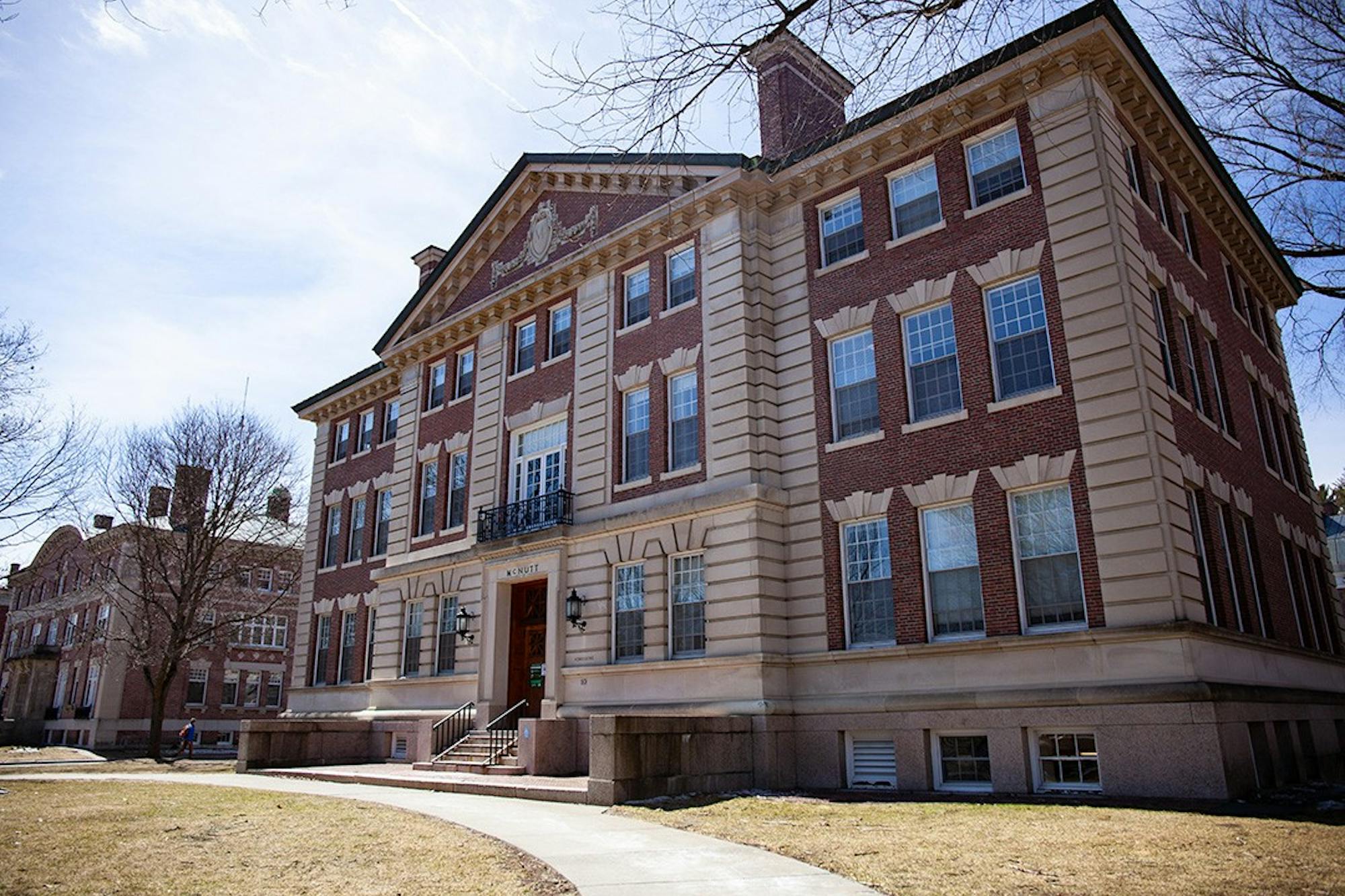On March 30, the College admitted 1,173 students through regular decision to the Class of 2027, drawing from a record-breaking 28,841 applicants, according to a Dartmouth News article. This year’s application cycle — which saw 2% more applicants apply than the Class of 2026 — marked the third consecutive year in which Dartmouth held a 6% acceptance rate and received more than 28,000 applicants.
The regular decision admits will join 578 students previously accepted in December through early decision and 47 who matched with the College through QuestBridge — a program that assists high-achieving, low-income students in college admissions. According to the College’s announcement, students admitted through regular decision have until May 1 to commit to attending next fall. The College expects an incoming class of 1,150 students.
According to the announcement, the Class of 2027 was the first class to apply with full access to College application resources — including in-person campus tours, information sessions and high school visits by admissions officers — since the Class of 2024 applied in 2019 before the COVID-19 pandemic began. In the announcement, vice provost for enrollment and dean of admissions and financial aid Lee Coffin wrote that the in-person experience “makes a big difference” in the application process.
Devin Gifford ’27, an admitted student from North Yarmouth, Maine, said that her campus visit influenced her decision to apply and commit to Dartmouth.
“I did an actual tour at Dartmouth, which I think was really beneficial to me because my tour guide was incredible,” Gifford said. “What was really impressive about her story was the opportunities that she’d been afforded through the alumni network at Dartmouth.”
Despite additional in-person resources, Alan Lam ’27, an admitted student from Atlanta, Georgia, said he chose not to visit campus, citing lingering concerns about the COVID-19 pandemic. Instead, Lam said he learned about the College through online resources, adding that he was excited about economics research, designing his own major and the D-Plan.
“I like how [students are] able to study at Dartmouth for a quarter and then go study abroad, because studying abroad is one of the things that I want to do,” Lam said. “I feel like Dartmouth — with the D-plan — allows you to do that a lot better than some other schools.”
The Class of 2027 was also the first cohort to apply since the College instituted several changes to financial aid, made possible by the Call to Lead campaign — a $3 billion initiative started in 2018 and aimed at cultivating leaders to tackle global issues, according to the campaign’s website.
For the upcoming academic year, Dartmouth will allocate $149 million to undergraduate financial aid, an increase from the current $135 million. The College also eliminated loans from financial aid packages and removed the required parent contribution from families whose earnings and assets fall below $65,000, the announcement stated.
Aubrey King ’27, an admitted student from Hendersonville, Tennessee, said the College’s financial aid offer helped her decide to commit to Dartmouth.
“Compared to other schools, [Dartmouth] offered much better financial aid, so it was a much better option and better value,” King said. “I’m just really grateful for this opportunity. It’s not something that happens to people where I’m from, so being given this chance to attend such a prestigious school — but also such a welcoming community — is a really excellent opportunity.”
The College is also one of seven U.S. institutions — along with Amherst College, Bowdoin College, Harvard University, the Massachusetts Institute of Technology, Princeton University and Yale University — that reports they apply a universal need-blind admissions policy and meet 100% of demonstrated need, regardless of citizenship, according to the announcement. In January 2022, however, plaintiffs sued Dartmouth and 16 other colleges and universities for allegedly breaking federal antitrust laws and raising the cost of attendance. In July, the U.S. Department of Justice filed a statement of interest supporting the plaintiffs.
According to the College’s announcement, admitted students in the Class of 2027 hail from all 50 states, the District of Columbia, Guam, Puerto Rico, the U.S. Virgin Islands and 75 nations outside the United States. Moreover, 56% of admitted students attend a charter or public school, and 444 admitted students rank first or second in their class.
“The admitted cohort sustains the demographic highlights of recent classes,” Coffin wrote in the announcement. “It is a cohort of individuals literally drawn from around the world — and from a rainbow of socioeconomic backgrounds, points of view, ethnicities and geographies.”
The College will host students and families for “Dimensions of Dartmouth” — an open house program in which admitted students spend the day or night with a current student — on April 17 and April 24, the announcement stated. According to an email sent to students, the College has not held the program in-person since 2019.




